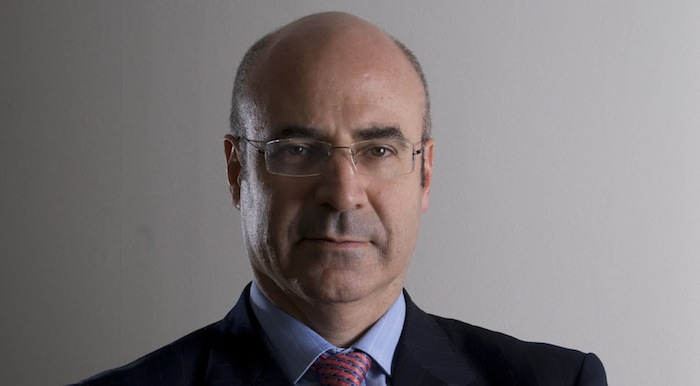In 2008 Mr Browder's lawyer, Sergei Magnitsky, uncovered a massive fraud committed by Russian government officials that involved the theft of US$230 million of state taxes which Hermitage had already paid in 2006. After testifying against the officials involved, Mr Magnitsky was arrested and imprisoned without trial by those very same government officials. He was tortured in an attempt to force him to retract his testimony and to falsely incriminate himself and his client in the crimes. Despite the physical and psychological pressure, he refused. For almost a year he suffered horrifying detention conditions, and when this led to a drastic deterioration in his health, he was denied any medical attention despite over twenty requests for assistance. He died on 16 November 2009 at the age of 37, leaving a wife and two children.
Since that time, Mr Browder has been leading a worldwide media, legal and legislative campaign to get justice for Sergei Magnitsky. Actions have included introducing legislation to the US Congress, Canadian and European Parliaments to implement visa bans and freeze the economic assets of those who perpetrated the crimes.
In June 2009, Bill Browder testified before the US Helsinki Commission Chaired by Senator Benjamin Cardin. In May 2010, Bill Browder also testified before the Tom Lantos Human Rights Commission. Following Sergei Magnitsky's death in November 2009, and with a complete lack of justice available for Sergei in Russia, the US Congress has taken the lead in supporting attempts to punish those responsible for Sergei's false arrest, torture, denial of medical treatment and death in custody.
In May 2011, Senator Cardin submitted the “Sergei Magnitsky Rule of Law Accountability Act of 2011” to the Senate. The new bill follows on from the previous “Justice for Sergei Magnitsky Act of 2010”. However, the new version of the law also applies sanctions to Russian officials who participated in the cover-up of those individuals who tortured and killed Mr. Magnitsky. This act now has 38 co-sponsors in the Senate. http://russian-untouchables.com/rus/docs/D409.pdf
In addition, the new Magnitsky Act has taken a dramatic and more global approach to the legislation in that it will allow the sanctions to apply to all those who are involved in killings, gross abuse and torture of human rights activists, journalists, anti corruption whistleblowers and other fighters for democracy and rule of law, across the world.
In July 2011, the Obama administration banned all the Russian government officials who played a role in Sergei Magnitsky's false arrest, torture and death.
Also in July 2011, the Dutch Parliament voted unanimously (150 – 0) calling on the Dutch Government to ban the Russian officials.
The Canadian Parliament has followed the United States by proposing similar legislation to the “Justice for Sergei Magnitsky Act” which will be presented as a Private Member's Bill by the Hon. Irwin Cotler MP, to the Canadian House of Commons. Irwin Cotler is a former Canadian Justice Minister and former lawyer to Nelson Mandela.
http://www.parl.gc.ca/HousePublications/Publication.aspx?Docid=5209506&file=4
The European Parliament has twice passed resolutions on the Magnitsky case, calling on all EU member states to impose visa sanctions and asset freezes on the Russian government officials involved in the false arrest, torture and death of Magnitsky. These motions were passed in December 2010 and December 2011.
In October 2011, 53 representatives at the Parliamentary Assembly of the Council of Europe (PACE) from 29 countries have co-signed the “Sergei Magnitsky Case” Declaration No.49 which urges Russia to immediately prosecute the killers of Sergei Magnitsky. Among the signatories were three Spanish representatives: Pedro Agramunt Font de Mora, Arcadio Diaz Tejera and Jordi Xucla i Costa. http://assembly.coe.int/Mainf.asp?link=/Documents/WorkingDocs/Doc11/EDOC12744.htm
In March 2012, a motion was unanimously passed in the British House of Commons calling for visa and economic sanctions on Russian officials involved in the original crimes uncovered by Mr Magnitsky and the cover-up since his death.
http://www.parliament.uk/business/committees/committees-a-z/commons-select/backbench-business-committee/news/debate-on-human-rights-and-death-of-sergei-magnitsky/
Also in March 2012, 59 Swedish members of Parliament from seven of the eight political parties signed a parliamentary petition to Swedish Prime Minister, Fredrik Reinfeldt, calling on him to impose EU-wide visa sanctions on Russian officials in the Magnitsky case. The parliamentarians stressed it is a matter of international importance given Russia's membership in the Council of Europe and WTO. http://russian-untouchables.com/rus/docs/D398.pdf
In April 2012, 69 members of Parliament from 29 countries signed a Parliamentary Assembly of the Council of Europe (PACE) motion entitled: “Refusing impunity for the killers of Sergei Magnitsky”. The motion called for a ‘dedicated report' to investigate the death of Sergei Magnitsky and to return the findings to the Assembly at a later date this year.
http://assembly.coe.int/ASP/Doc/XrefViewPDF.asp?FileID=18232&Language=EN
In July 2012, the OSCE Parliamentary Assembly passed a resolution calling on all OSCE member states to impose visa sanctions and asset freezes on people who are responsible for the false arrest, torture and murder of Sergei Magnitsky, and the corruption he had uncovered. The resolution was approved by an overwhelming majority. Only 18 deputies voted against it and 11 abstained.
In the resolution, the OSCE Parliamentary Assembly stated that the harassment and torture of Sergei Magnitsky in custody was and remains politically motivated. Joao Soares (Portugal), former president of the OSCE Parliamentary Assembly, introduced the resolution and 13 supporting speeches were made as well as one by Senator John McCain who spoke on behalf of the US Delegation to the OSCE PA.
Monaco Declaration (English)
Currently, Mr Browder is working with the European Parliament, the European Commission, the OSCE Parliamentary Assembly, the Council of Europe and parliamentarians from several individual EU member states including, Poland, Germany, Norway, France, Portugal, Lithuania, Latvia, Holland, Estonia and the Czech Republic to ensure the implementation of the visa ban and asset freezes across the European Union.




